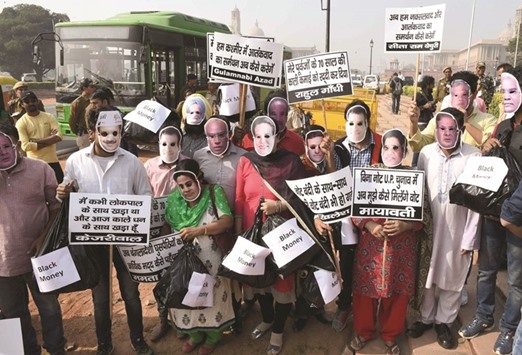Over the past two weeks, India has pushed ahead with the demonetisation of Rs500 and Rs1,000 as part of a drive to fight corruption and tax evasion.
As people line up to deposit and exchange old banknotes for new ones, the central bank is to begin a massive exercise to destroy more than 22bn junked notes.
Stacked on top of one another, the pile of these expired notes would be 300 times the height of Mount Everest, Bloomberg news wire said in a recent report.
The invalid currency notes amount to 86% of the total currency in value and about a quarter of the 90bn banknotes in circulation, according to Reserve Bank of India (RBI).
RBI officials said the notes will be treated as soiled currency, which means it will shred all the notes and turn them into small bricks or briquettes.
Briquettes, generally made from farm waste in India, can be used for cooking and heating as well as for fuel in factories.
“Since they are made out of shredded cash, they are brittle and will serve no such purpose, so they will be dumped in landfills,” RBI spokeswoman Alpana Killawala said.
Some of the shredded currency would be converted into paper weights, pen stands or tea-coasters as mementos for guests or for use at the bank, Killawalla added.
RBI officials say dealing with the huge amounts of worthless currency presents no logistical challenge.
“The RBI has the capabilities to destroy the cash since there are enough machines. This is part of the routine for us,” Killawala said.
The RBI destroyed as many as 16.4bn soiled notes in 2015 and 2016.
Among the most cash-intensive economies in the world, India is the largest producer and consumer of currency notes after China.
Central banks around the world destroy notes in various ways. Until 1990, the Bank of England incinerated notes, using the energy generated to heat the bank.
It later started to recycle them using a composting treatment and used it as a soil improver for agriculture.
In 2012, Hungary’s central bank burned old notes to help the needy during winter, the Economic Times reported.
The bank turned those currency notes into briquettes and sent them to humanitarian organisations.

People supporting the central government’s demonetisation move stage a rally at Vijay Chowk in New Delhi yesterday.
